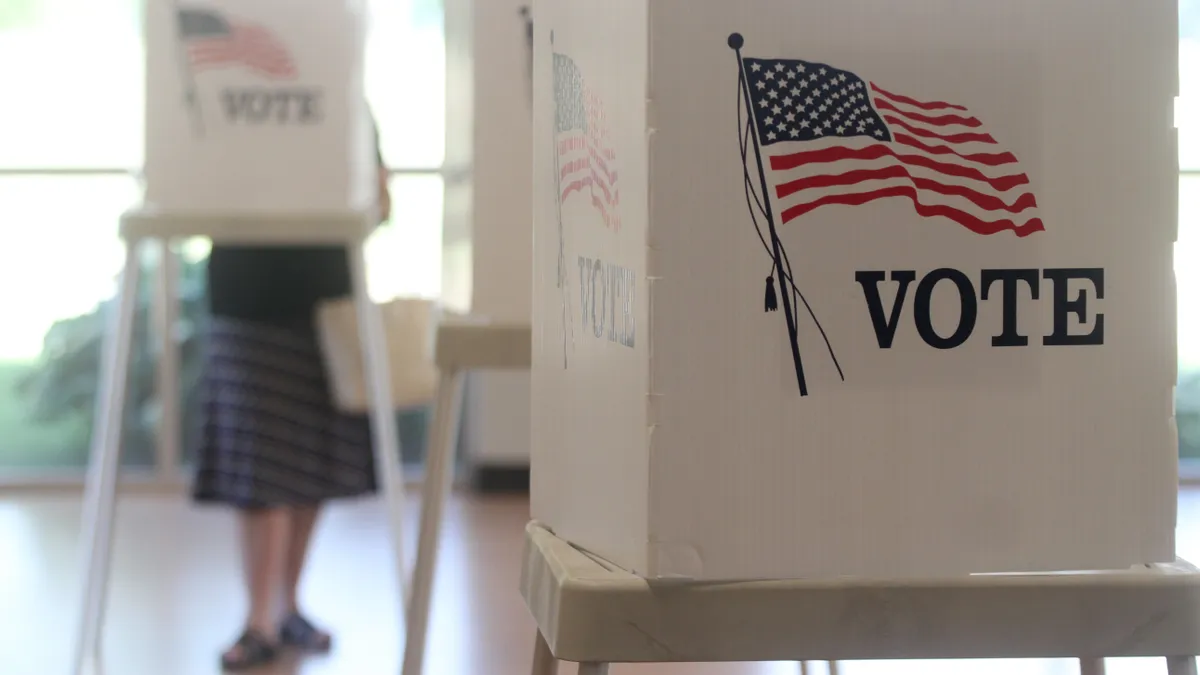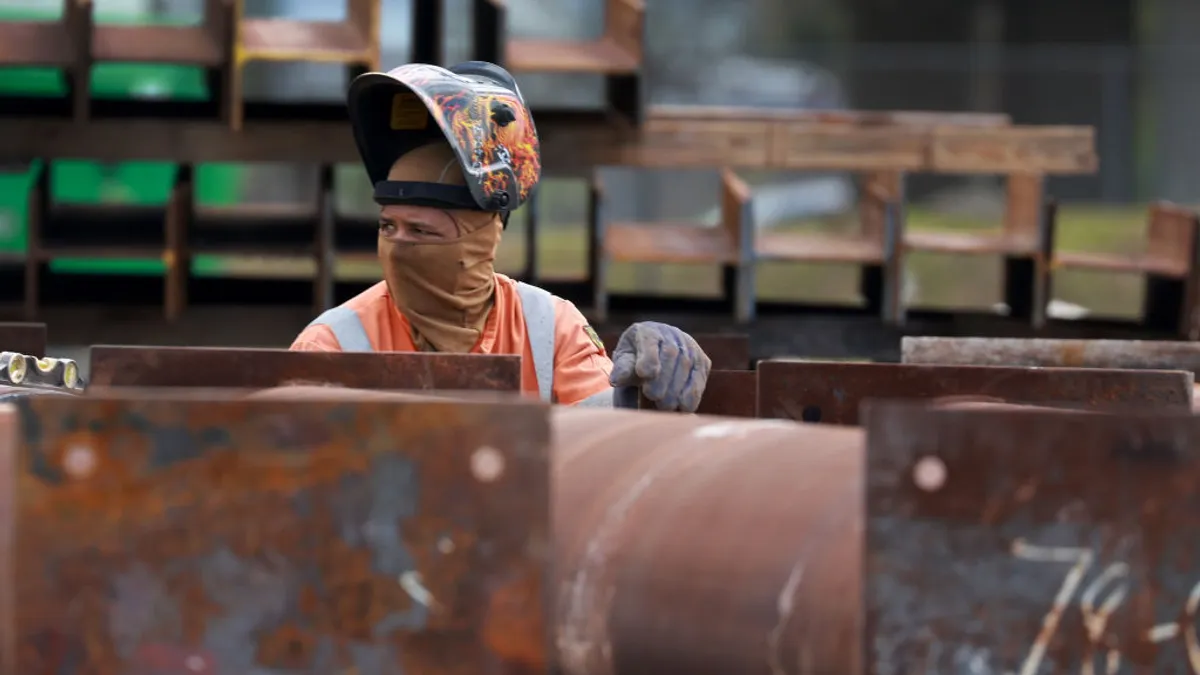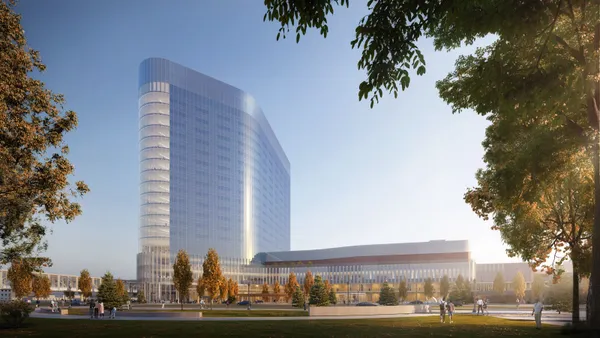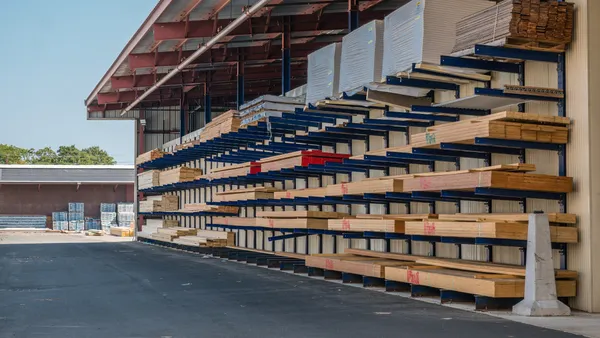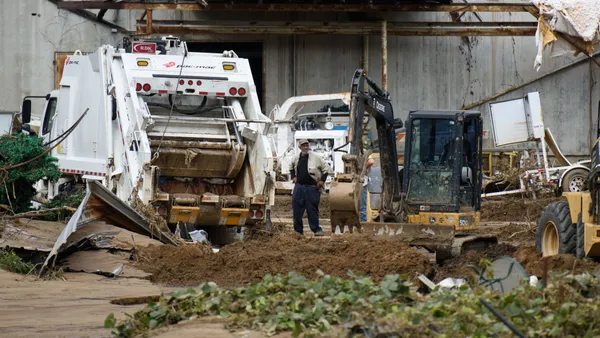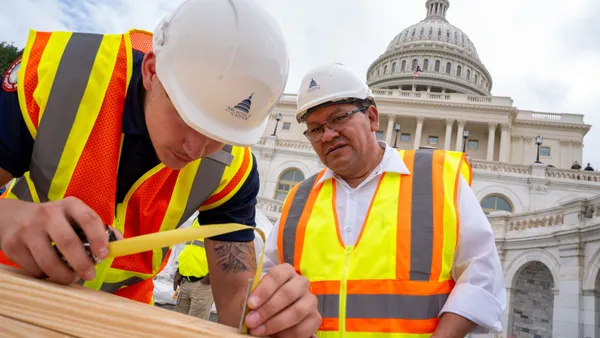Dive Brief:
-
California state senators have passed a series of bills to mitigate the state's housing crunch, including a $3 billion affordable housing bond, according to the Sacramento Business Journal.
-
Among the biggest to pass is Senate Bill 35, which joins the others in moving to the California State Assembly for consideration. The legislation would let developers opt into a streamlined approvals process for affordable multifamily developments in high-density areas that aren’t keeping up with housing production goals.
-
Together, the bills would produce new systems for jurisdictions to use in allowing such development or restrict how those projects could be denied.
Dive Insight:
Caught amid California's housing crunch, Senate Bill 35's passage comes as a potential boon to the state's future affordable housing stock. And it jives with California Gov. Jerry Brown's call for legislation that would cut red tape for residential developers, including streamlining the permitting process and incentivizing local governments to meet housing development goals.
California State Sen. Scott Wiener, who introduced the bill in December 2016, has echoed that request, saying that market-rate housing should be incorporated into the push for more low- and middle-income properties so as to encourage developers to participate.
Estimates put the annual growth in California's housing stock 100,000 units short over the last decade of what is needed to keep up with current and future demand. The state's middle-class populations are feeling the strain acutely, as the group earns too much to qualify for subsidized down payments, but can't afford to keep up with soaring home prices.
While municipalities like Los Angeles and San Francisco are taking concrete steps to encourage affordable housing development, state legislators have been ratcheting up efforts to support such projects across the state. Wiener’s Senate Bill 35 would exempt entirely affordable housing projects from having to comply with certain local building regulations. Another state senate bill would see funding for such housing generated through a $75 tax on real-estate transactions, and a separate bill would end a tax incentive on second homes to fund existing affordable housing programs. The latter two bills were not included in last week’s approvals package.
The push to incentivize affordable-housing development, particularly near transit, stands to benefit both residents aiming to improve access to employment and other resources and developers seeking potential tax credits on their projects. Recent findings from Urban Land Institute Washington note that transit-oriented developments are not only an optimal use of urban space and infrastructure, but could also be a tax boost for their cities.




